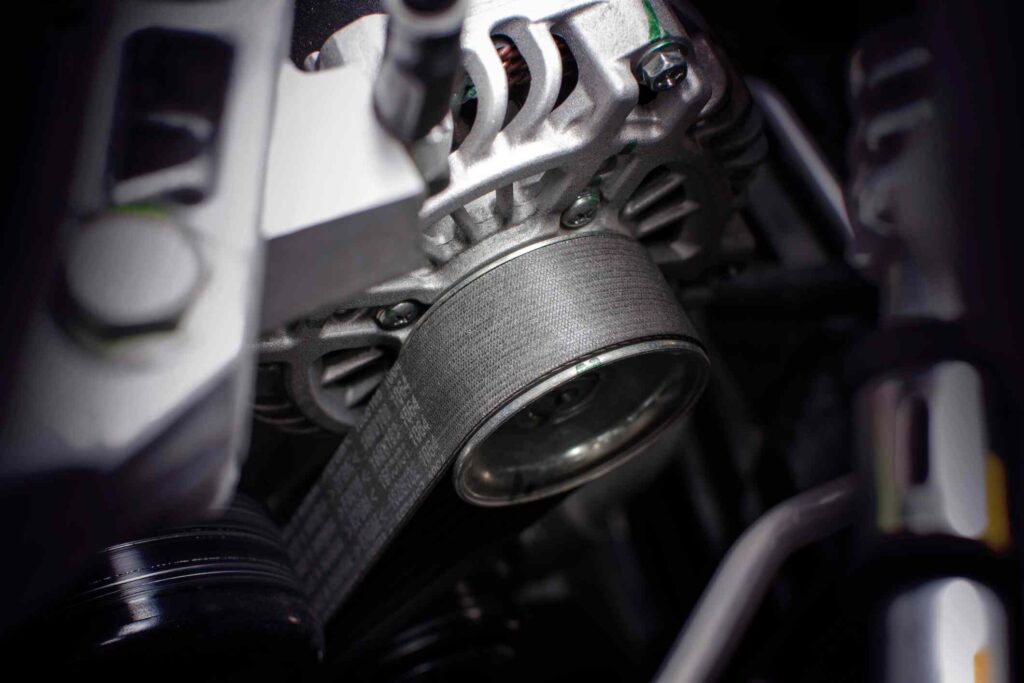Alternators: What Are They and What Do They Do?

Your Alternator: What Is It and What Is Its Purpose?
An alternator – what is it? All vehicles have an alternator, and it is a key part of the vehicle’s charging system. An alternator works alongside the vehicle’s battery and voltage regulator to ensure it runs properly and has the power it needs for critical functions. At Boyd Motor Werks, we are an independent automotive service center specializing in BMW and MINI Cooper maintenance, repairs, and replacement parts in Portland, OR. Here is our guide to an alternator’s purpose, signs of alternator problems, and what you should do if your alternator goes out suddenly.
What Is an Alternator?
An alternator provides direct current (DC) power while your car is driving or idling. It ensures that your vehicle’s headlights, power steering and windows, windshield wipers, radio, dashboard instruments, and heated seats are powered on and functioning properly while your vehicle is in use. The alternator looks like a small cylindrical generator that is bolted to the engine. The alternator, battery, and voltage regulator are the key elements of your vehicle’s charging system. The alternator supplies energy stored in your vehicle’s battery by taking mechanical power from the drive belt or serpentine belt and converting that mechanical energy into electricity.
What Is an Alternator’s Purpose?
Your alternator’s purpose is to convert the mechanical energy from your vehicle’s engine into electrical energy. This electrical energy is used to power your vehicle’s electrical systems. The alternator’s job includes:
- Charging Your Vehicle’s Battery – The alternator charges your vehicle’s battery by converting alternating current (AC) to direct current (DC).
- Providing Power for Electrical Components – The alternator supplies DC power to your vehicle’s electrical components like the headlights, power steering and windows, and radio.
- Powering the Vehicle’s Motor – The alternator provides a steady electric charge to the motor, which fires spark plugs.
Do Alternators Go Out Suddenly?
An alternator can fail slowly over time or go out suddenly. Because your alternator is a vital part of your vehicle’s electrical system, your vehicle may experience minor to major electrical issues if your alternator fails. Your alternator may go out suddenly due to a bad fuse, wiring problems, a damaged or faulty alternator, a broken belt or pulley, or an old or dead alternator.
Common Problems With Alternators & Their Symptoms
It’s important to be aware of the warning signs of a bad or failing alternator. If you notice any of these symptoms, you should bring your vehicle to a service center right away:
- Dimming Lights or Lights That Are Too Bright – If your lights are suddenly too dim or too bright or are flickering or operating erratically, your alternator may be providing inconsistent voltage.
- A Dead Battery – A dead battery, especially if it happens suddenly or not long after your battery was replaced, could be a signal of a failing alternator. If the alternator is faulty or bad, it won’t charge the battery enough while your vehicle is running, which means the charge will be depleted faster than usual.
- Slow or Malfunctioning Accessories – Your vehicle’s electronic accessories, like the windshield wipers, power steering, power locks and windows, and seat warmers, rely on power from your alternator. If your alternator is damaged or bad, they may become slow, erratic, or inoperable.
- A Whining or Growling Noise – You may hear a whining or growling noise from the hood of your vehicle if the belt that turns the pulley is misaligned or if the bearings for the rotor shaft are worn down.
- Burning Rubber Odor or a Fishy Odor – A burning rubber or fishy odor could indicate an electrical problem or a worn-out alternator. A burning rubber smell could indicate a seized alternator pulley bearing or damaged belt. A fishy odor could indicate an electrical issue like frayed or damaged wires or an electrical fire.
- Illuminated Battery Warning Light – An illuminated battery warning light could indicate a problem with your alternator.
What Should I Do if I Have an Alternator Problem?
Driving with a bad or damaged alternator can cause major problems with your vehicle. You might have a dead battery, power loss, or a vehicle breakdown, which could cause an accident or inconvenience. If you notice any warning signs of an alternator problem in your BMW or MINI Cooper, our team at Boyd Motor Werks can help.
Why Choose Boyd Motor Werks for Alternator Repair
At Boyd Motor Werks, we are a family-owned and operated independent automotive service center with over 40 years of experience. We specialize in BMW and MINI Cooper inspections, maintenance, repairs, and replacement parts. Our highly skilled and experienced auto technicians are knowledgeable, helpful, and friendly. Our state-of-the-art service center uses the latest technology and techniques to provide vehicle repairs. We can quickly diagnose the cause of your alternator problem and determine if you need alternator repair or replacement. We also offer routine vehicle maintenance that can reduce your risk of an alternator problem.
Make an Appointment for Alternator Service or Repair
Call us now or contact us online to schedule an appointment for alternator service or repair in Portland, OR, or the surrounding areas. We specialize in automotive repairs, maintenance, and replacement parts for BMWs and MINI Coopers. Ensure your vehicle runs properly, is safe, and stays under warranty by choosing our team at Boyd Motor Werks for your automotive service needs.
